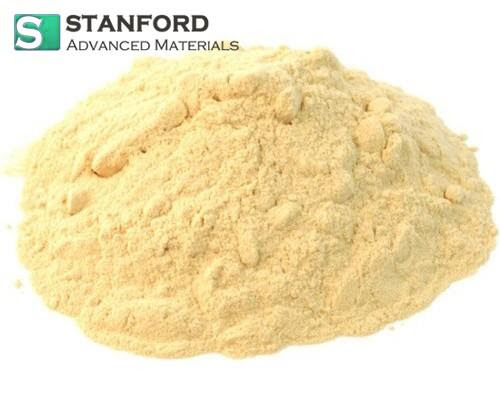Nano cerium oxide, a nanoscale compound of cerium and oxygen, stands at the forefront of materials science, heralding a new era in display and lighting technologies. Known for its exceptional optical properties and chemical stability, nano cerium oxide is emerging as a critical component in the development of advanced technological solutions. This material's unique ability to manipulate light and improve energy efficiency offers significant advancements in the quality and performance of displays and lighting systems, marking a pivotal shift towards more sustainable and high-performing devices.
As industries increasingly seek innovative materials to overcome current technological limitations, nano cerium oxide is positioned as a key enabler of next-generation displays and eco-friendly lighting solutions. This article delves into the properties, applications, and future prospects of nano cerium oxide, illuminating its role in shaping the future of display and lighting technologies.
Nano cerium oxide is distinguished by a set of exceptional properties that make it indispensable in advancing display and lighting technologies. Its unique capabilities in light manipulation, chemical stability, and energy conversion position it as a superior choice for a wide range of applications.
The integration of nano cerium oxide into display technologies marks a significant leap forward in the quest for crisper, more energy-efficient screens. In LCDs, LEDs, and OLEDs, the material's superior optical properties help achieve unparalleled color fidelity and brightness, vital for the high-definition displays demanded in today's market. Nano cerium oxide's ability to scatter light effectively reduces the energy consumption of these devices while enhancing the luminosity and clarity of the images they project.

For LED displays, which are pivotal in smartphones, TVs, and digital billboards, nano cerium oxide contributes to the generation of pure white light, a crucial element for accurate color representation. This is achieved by its exceptional ability to convert blue LED light into a broad spectrum, closely mimicking natural sunlight. This not only improves visual comfort but also reduces the strain on the eyes, an essential consideration in an era dominated by screen usage.
In OLED technology, nano cerium oxide plays a crucial role in extending the lifespan of devices. Its stability and resistance to photodegradation protect organic compounds in OLED panels from rapid deterioration, ensuring that screens maintain their brightness and color accuracy over time. Additionally, the material's UV absorption capabilities safeguard sensitive components from damage, further enhancing the durability of OLED displays.
Beyond improving the quality and efficiency of displays, nano cerium oxide's photocatalytic properties open the door to innovative features like self-cleaning screens. By breaking down organic pollutants upon exposure to light, screens can maintain their clarity without the need for frequent cleaning, a groundbreaking advancement in display maintenance.
The ongoing exploration of nano cerium oxide in display technologies promises not only to elevate the visual experience of users but also to pave the way for more sustainable and user-friendly devices, aligning with the global shift towards greener technologies and healthier lifestyles.
Nano cerium oxide's impact extends beyond display technologies, revolutionizing the lighting industry with solutions that are both energy-efficient and environmentally friendly. Traditional lighting systems, as well as modern LEDs, benefit significantly from the incorporation of nano cerium oxide, mainly through enhanced light emission and longevity.

In LED lighting, nano cerium oxide contributes to higher efficiency and better light quality. Its ability to convert UV and blue light into a broader spectrum enhances the white light quality, crucial for both indoor and outdoor lighting applications. This improvement in light quality does not come at the expense of energy consumption; instead, LEDs with nano cerium oxide are more energy-efficient, reducing the overall energy demand of lighting systems and contributing to a lower carbon footprint.
Moreover, the thermal stability of nano cerium oxide ensures that LED lights can operate for longer periods without degradation caused by heat, a common issue in high-intensity lighting applications. This property extends the lifespan of LED bulbs, reducing waste and the need for frequent replacements. The environmental benefits of using nano cerium oxide in lighting technologies align with global efforts to promote sustainability and reduce energy consumption.
Nano cerium oxide also plays a crucial role in developing lighting solutions that can purify the air. Its photocatalytic properties enable the degradation of pollutants, offering a dual function—illumination and air purification—within a single device. This innovative application has the potential to improve indoor air quality, contributing to healthier living environments.
The advancements in lighting technologies powered by nano cerium oxide are a testament to the material's versatility and potential to address contemporary challenges. As research continues and its applications expand, nano cerium oxide is set to illuminate the path towards more sustainable, efficient, and innovative lighting solutions that benefit both people and the planet.
Nano cerium oxide represents a frontier in materials science, offering transformative potential across display and lighting technologies. Its unique optical, thermal, and chemical properties provide solutions to longstanding challenges, enhancing performance, efficiency, and sustainability. While challenges in cost and scalability persist, ongoing research and interdisciplinary collaboration promise to overcome these hurdles, paving the way for broader adoption and new applications. As industries explore the vast possibilities of nano cerium oxide, partnering with experienced suppliers like Stanford Materials Corporation (SMC), known for its expertise in rare earth materials, can provide the necessary resources and support to harness this potential fully. SMC stands ready to supply high-quality nano cerium oxide, facilitating advancements in technology and contributing to sustainable development. As we continue to explore the possibilities nano cerium oxide holds, its role in advancing technology and promoting environmental sustainability becomes increasingly evident, marking a significant step forward in our journey towards a brighter, greener future.
Eric Loewen
Eric Loewen graduated from the University of Illinois studying applied chemistry. His educational background gives him a broad base from which to approach many topics. He has been working with topics about advanced materials for over 5 years at Stanford Materials Corporation (SMC). His main purpose in writing these articles is to provide a free, yet quality resource for readers. He welcomes feedback on typos, errors, or differences in opinion that readers come across.

 Inquiry List
Inquiry List

